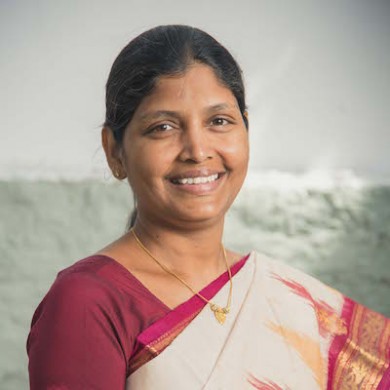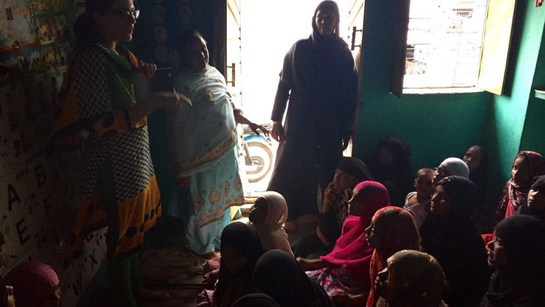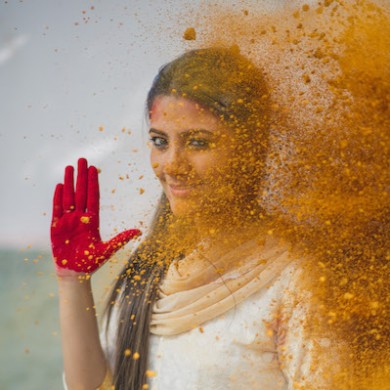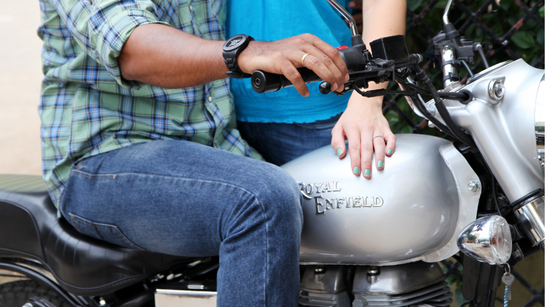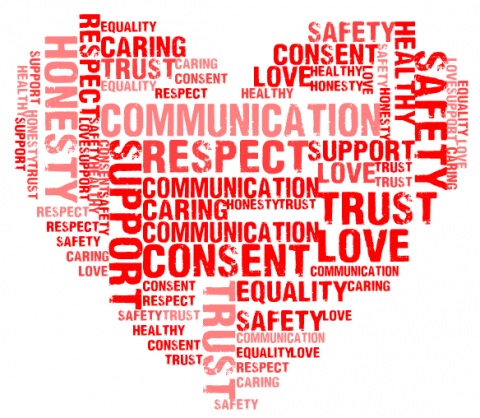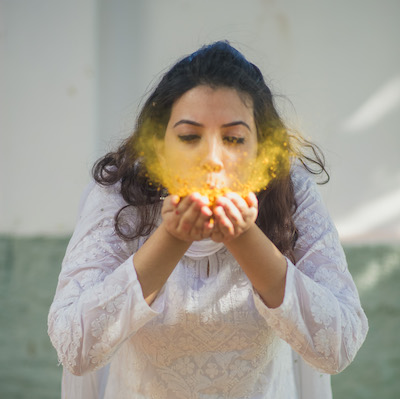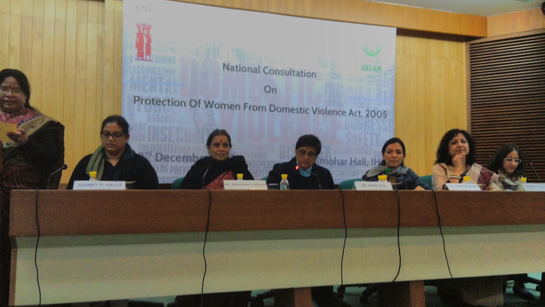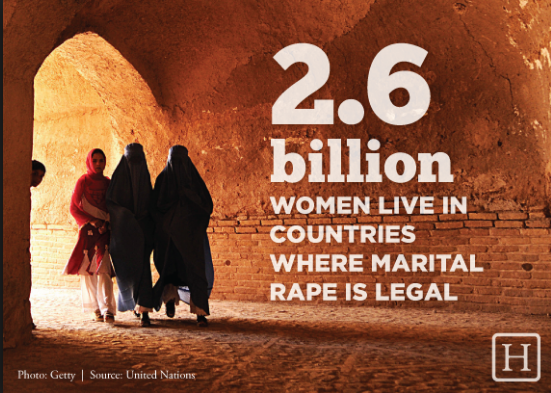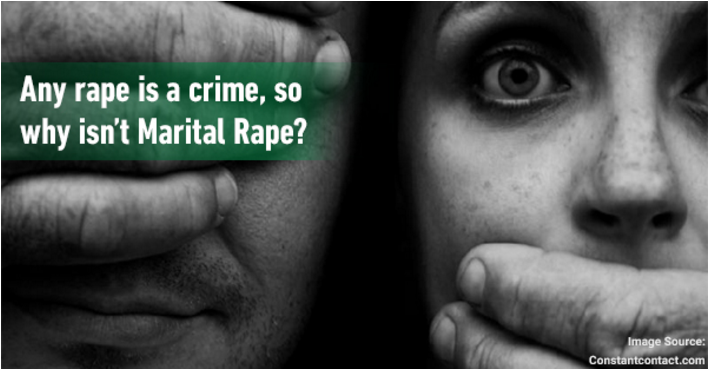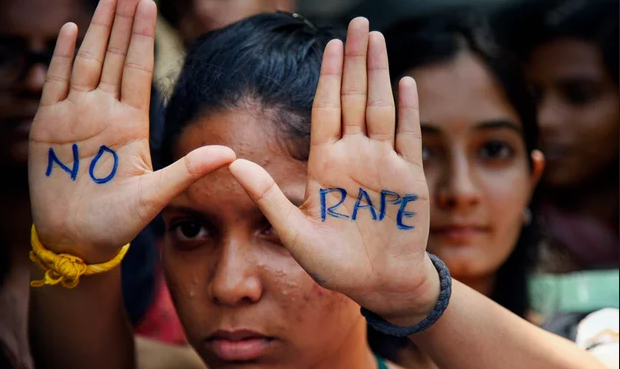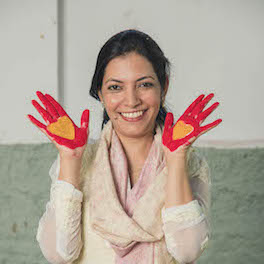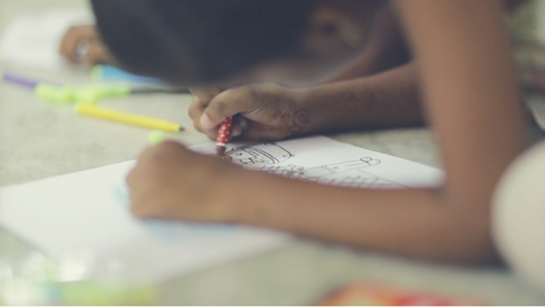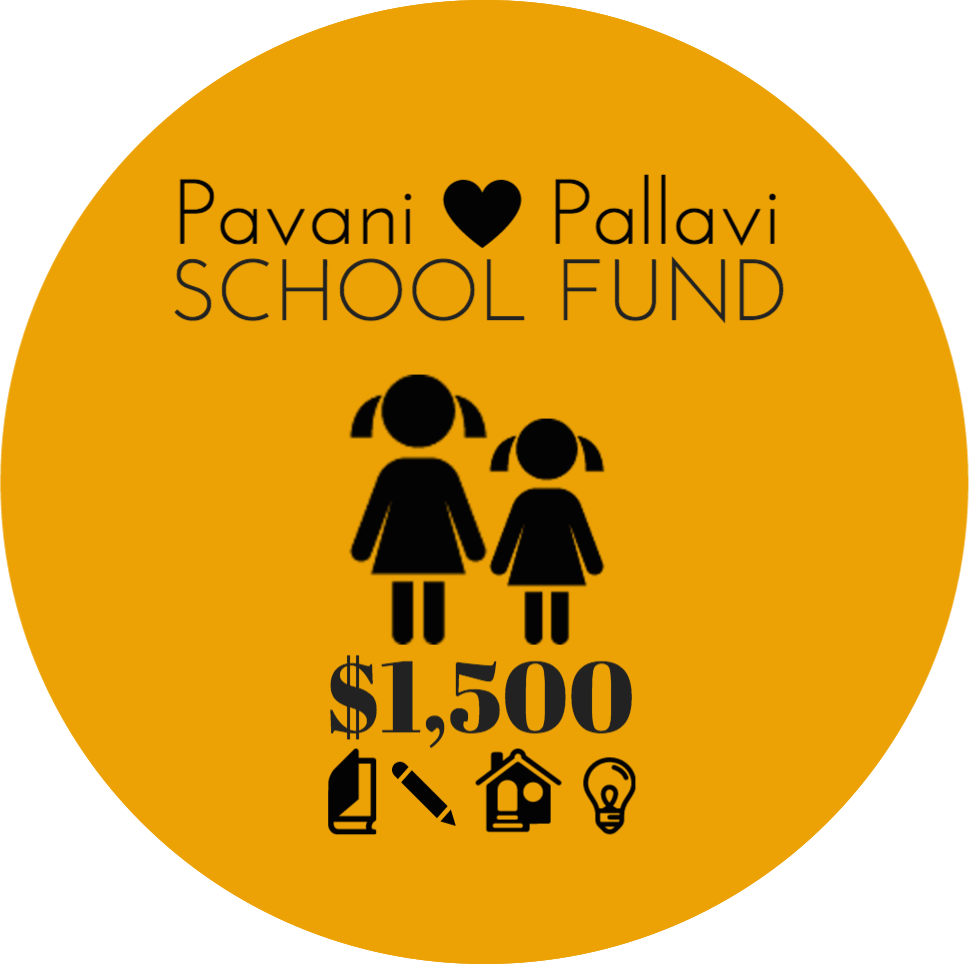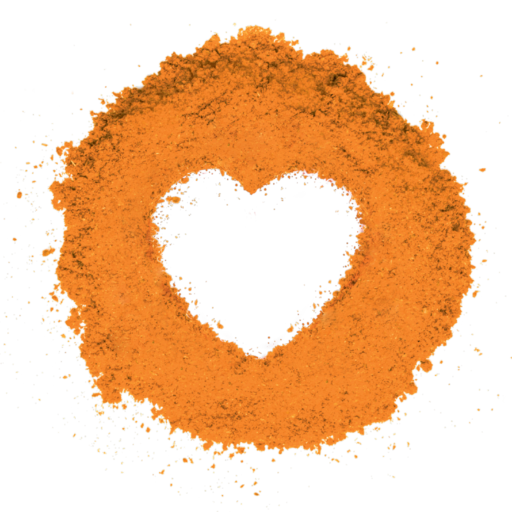- CATEGORY: OPERATION PEACEMAKER
Growth of our Warangal Centre!
An update on Warangal Counselling Centre: Our growth and Stories.
A note from Kranthi Aahron, Counsellor at our most outreach active Counselling Centre…
Our New Peace Makers joined us at warangal center in “ The Operation Peacemaker “ from the first week of August. The two week PM training had been a wonderful time of preparing them for “ The Operation Peacemaker”. Few PM’s exclaimed that they see a Great change in their own thinking after the training period and in their internship. They said that the capacity building sessions every week also are helpful.
Before August, warangal centre had 3 PM’s and cases below 75. After adding a vibrant set of PM’s, within a month, warangal centre reached century and above. We are having total no. of cases till date are up to 300. The warangal center also had an increase in Outreaches, Basthi Meetings and School Programs.
Not only that our centre has become so busy in reconciling families. Few broken families were reunited, many families came to better understanding and very few remained unresolved. There is a drastic change in statistics and quality of our “ Operation PeaceMaker “ at Warangal centre.
Parveen Banu’s Story
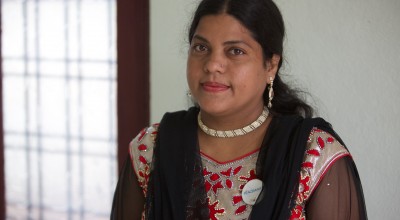
Parveen Banu
When Parveen was in school, she was stalked by a man for four years. Her stalker would repeatedly propose marriage, only to be turned down every time. In later years, when marriage proposals from other men would reach her family, Parveen’s stalker would invariably find out and ruin the match. He would then harass her by accusing her of being unfaithful to him for even considering the other proposal.
This went on for several years, with no marriage proposals working out for Parveen. It led her to reconsider her stance against her stalker. “It is better to marry someone who loves me,” was the thought on her mind when she finally accepted his proposal.
The relationship immediately turned bad as her stalker-now-husband turned out to be an alcoholic, who abused her when drunk. Furthermore, he also refused to work. They had three children in quick succession. Parveen says she had no say in whether to get pregnant, it was forced on her. She was also faced emotional abuse from her mother-in-law, who blamed Parveen for her husband’s behaviour. “It is all because of you. You can neither handle a family nor a husband,” she was told.
When her husband moved to the Persian Gulf, Parveen expected a respite, but this was not possible. Her husband would call incessantly. He would be outraged if she didn’t answer his call on the first ring, and would insinuate that she must be having an affair with another man.
All of this took a toll on Parveen’s health. She was depressed, and over time became obese.
Parveen came across a vocational course subsidised by the government to train as a beautician, and with her husband still out of country, she grabbed the opportunity. With determination and training, Parveen soon started working in a beauty salon for women. The opportunity to learn a skill, work and support her family financially were all hugely empowering opportunities for Parveen, and it boosted her self-esteem tremendously. Her skillful work was noticed by her clients, who soon started to request her for customised services. She also started teaching in the same government-run programme where she had trained. When her husband returned home jobless, he couldn’t ask her to cut off the financial support.
Parveen started to believe in herself. “I can do something”, she told herself.
“I can do something,” she told herself.
It was at this time that Parveen came across the Warangal PeaceMaker recruitment drive. To her, it seemed like it would help improve her marital situation. She didn’t think she would ever become strong enough to help other families.
The training to be a PeaceMaker had a strong impact on Parveen. She finally found a group she could share her story with, confide in and relate to. They all wept with her when she recounted her story. Parveen’s confidence and self-esteem rose with their support. She worked to lose weight, and fought her obesity and depression. She felt more in control of her life, and believes she is a better mother to her children because of it.
The changes in Parveen’s self-esteem and confidence didn’t go unnoticed. Her husband became aware of her assertiveness and self-assurance that developed during the the training programme. He started to keep a close watch on her movements, and would keep asking her where she went.
However, none of this deterred Parveen. She didn’t feel helpless anymore. Her training taught her how to work with her husband to get peace. She began to get her husband to talk about why he was angry and what was upsetting him, rather than use his fists. He still doesn’t have a job, but he no longer has control over Parveen.
As a PeaceMaker, Parveen has already helped support 13 families to find peace and end domestic violence in their homes. She has led 17 Basti (community awareness) Meetings on her own – something most PeaceMakers take months to build up to – in addition to assisting on many more. From an emotionally over-wrought and sensitive personality, she has turned into an enthusiastic and super-confident woman.
Parveen believes her work helps her to do something important for women facing abuse. In the eight years of her marriage, she says she could not find a single person to help her. She looked for help, but no one stepped forward. She feels duty-bound to help other abused women now that the PeaceMaker program has helped her.
“I don’t want another woman to go through what I went through,” she says.
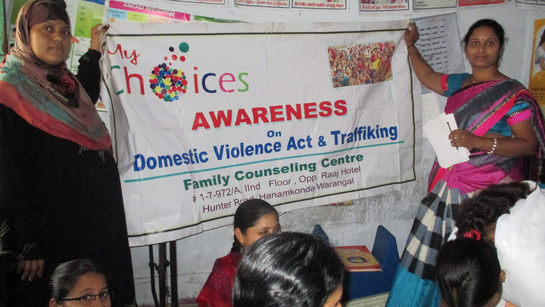
Parveen Banu running a Basti Meeting. (Old “My Choices” used on the banner.)
